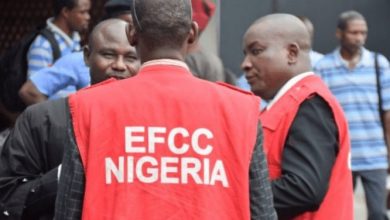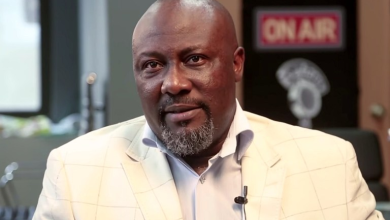Wike Blasts Abuja’s ‘Big Men’ for Tax Avoidance, Demands Compliance
FCT Minister says wealthy residents pay abroad but ignore dues at home, stalling development.
Road projects like CN2, he explains, rely on taxes and ground rents from responsible citizens.
The Minister of the Federal Capital Territory (FCT), Nyesom Wike, has openly criticized affluent residents of Abuja for their poor attitude towards paying taxes and ground rents, stating that they are the biggest obstacle to voluntary tax compliance in the territory.
Wike made the remarks on Thursday during the official commissioning of the newly completed Collector Road CN2 (Zakari A. Kyari Street), which connects Arterial Road N11 (Ahmadu Bello Way) in Mabushi to Katampe District, including access roads leading to Judges Quarters and other residential areas. The project was executed by the Federal Capital Territory Administration (FCTA) and inaugurated by President Bola Tinubu, who was represented at the event by the Deputy Speaker of the House of Representatives, Benjamin Kalu.
The FCT Minister expressed disappointment over what he described as a double standard among wealthy residents of Abuja. According to Wike, many of these individuals willingly pay taxes and property-related charges in foreign countries like the United Kingdom and the United States but fail to show the same sense of responsibility in their home country.
“The real problem we have in Abuja when it comes to funding infrastructure is not a lack of resources, but the unwillingness of the big men to pay what is due,” Wike stated. “They pay ground rent and taxes in London and America without being compelled, but here they resist even the most basic financial obligations.”
He emphasized that projects like the CN2 road were made possible by taxes and ground rents paid by law-abiding citizens. He further noted that withholding such payments directly hinders the government’s ability to deliver necessary infrastructure to the residents of the capital.
“For those complaining that we sealed their properties due to unpaid ground rent, this is what the money goes into roads like this. If you don’t pay, we won’t have the means to construct these facilities,” he said.
Wike also challenged the widely held perception that Abuja is a wealthy city with limitless funding. He explained that the territory receives only one percent of the monthly federal allocation, which is barely enough to meet wage obligations. Using an example, he said that if the federal government receives ₦800 billion, only ₦8 billion goes to the FCT a sum that cannot even cover its monthly salary bill, which has risen to ₦13 billion due to the recent minimum wage adjustment.
“If we depend solely on that one percent, we can only pay salaries and do nothing more,” he said. “That’s why we insist that people must pay taxes. Infrastructure cannot be enjoyed free of charge.”
He urged President Tinubu, through the Deputy Speaker, to appeal to residents of the FCT on the importance of tax compliance, stressing that further development depends on collective financial responsibility.
Wike also warned that individuals who continue to default on their ground rent obligations would soon have their names publicly listed in newspapers.
“This is not about embarrassment,” he said. “We need funds to build infrastructure. Those erecting structures in Katampe and Mabushi are not poor people these are multi-million-naira properties. If you can build here, you can pay your dues.”
Earlier in the event, Richard Dauda, acting Executive Secretary of the Federal Capital Development Authority (FCDA), noted that the road project was handled by the construction firm CGC and began in October 2024. He explained that the CN2 road consists of a dual carriageway with two lanes on each side, while the other adjoining roads are single lanes.
According to Dauda, the development was part of ongoing efforts to improve infrastructure and open up the Katampe District for residential and economic growth.



